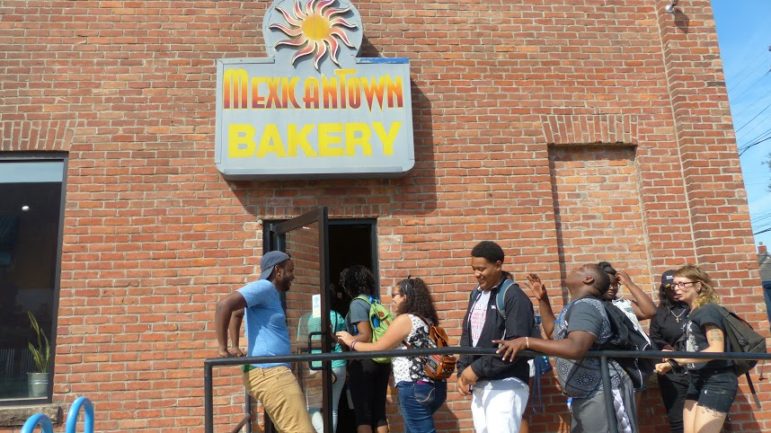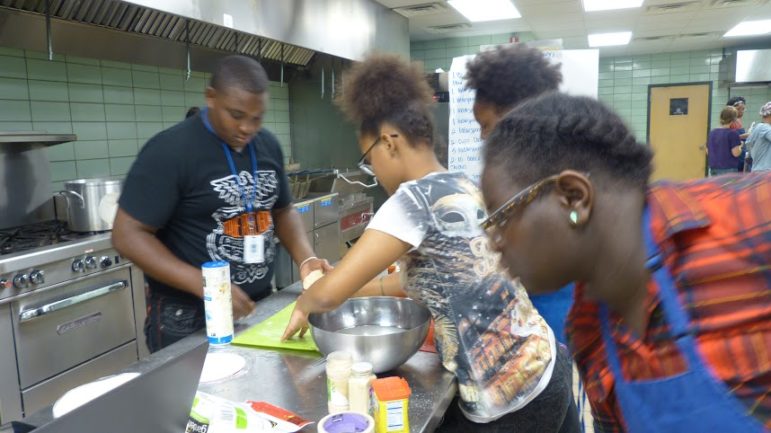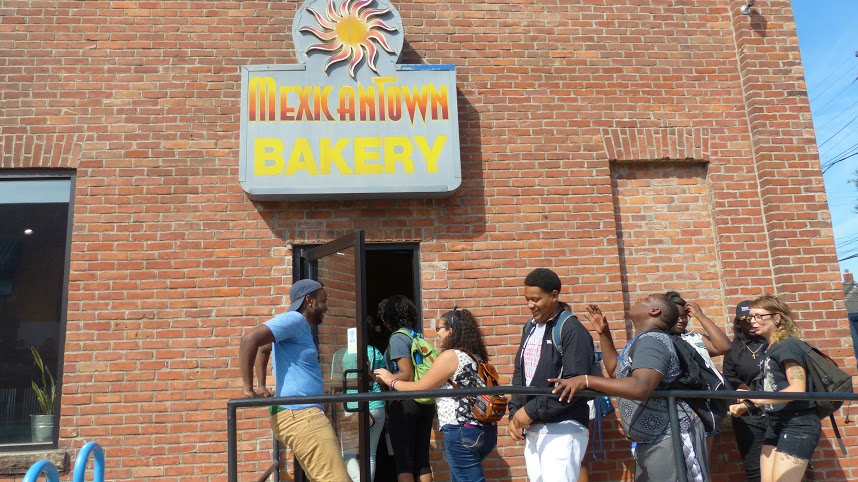
Photos courtesty of Detroit Food Academy
.
Last year, 250 Detroit students attended an after-school program in which they shopped for groceries, chopped vegetables and planned food events.
They learned skills that would serve them well in the food-service industry. But in this program, known as the Detroit Food Academy, kids learn far more.
“It encourages students to problem-solve around something they’re interested in,” said Angela Abiodun, program director at Detroit Food Academy.
Food is the vehicle because “everyone loves food,” Abiodun said. “It works to encourage exploration in ways that other vehicles might not.”
Detroit is a city with one of the highest rates of disconnected youth — young adults ages 16 to 20 who are not in school and not in a job, according to a report by Measure of America. In fact, about one-quarter of African-American youth in Detroit are described as disconnected, according to the report.
Through Detroit Food Academy, students in eight high schools spend the fall learning to cook, developing recipes they teach to younger children and working with community leaders and food professionals. Each small group is mentored by a chef.

Along the way, they can improve their math and reading proficiency, for example, by calculating amounts of ingredients and figuring costs.
“It’s a lot of what we want to see in our classrooms, just in an alternate way,” Abiodun said.
[Related: Personal Development for the OST Workforce: A Shift in Focus for a Growing Field]
“At the end of the fall, students do a ‘meal share,’” she said. They plan a meal for a group and prepare and serve food.
Then, in the spring semester they design their own food product and plan how to market it.
“Students create a food-based business,” Abiodun said, and take it to market, whether the market is their own school or Detroit’s huge Eastern Market, where thousands of people shop at vendors, stores and restaurants.
This summer, 20 of the students are in the organization’s paid leadership program. One of their activities is to raise questions about food-related issues and research the answers.
For example, some students are investigating the process that determines what’s served in school cafeterias.
“Students are looking into the school budget,” Abiodun said. And they’re looking at alternate ways of doing lunch.

They also surveyed high school students across Detroit about lunch.
The program was created by Jen Rusciano, Noam Kimelman and Amy Berkhoudt in 2011 as an innovative educational community. All three were concerned about the politics of food and sustainability around food production.
The organization uses the Achieve-Connect-Thrive (ACT) Skills Framework, a tool created through Boston After School & Beyond to bridge the youth development and education fields. This framework focuses on helping kids achieve literacy and math skills, develop supportive relationships and increase the resilience, perseverance and self-efficacy they need to thrive.
Berkhoudt wrote in the Huffington Post in 2013: “What we did not realize was how hungry (pun intended) these young people were for an opportunity like this. This program feeds a basic need for our young people; Detroit Food Academy gives them a place to be and group to belong to. And they completely own it.”
For Resources on Health in Out-of-School Time, go to: https://youthtoday.org/hub/health-in-out-of-school-time-programs/
More related articles:
Building Trust and Support for Homeless Youth in OST Programs
How Can We Protect Teen Workers from Occupational Dangers?
Keeping Adolescents Engaged: What Can After-School Programs Do?
































